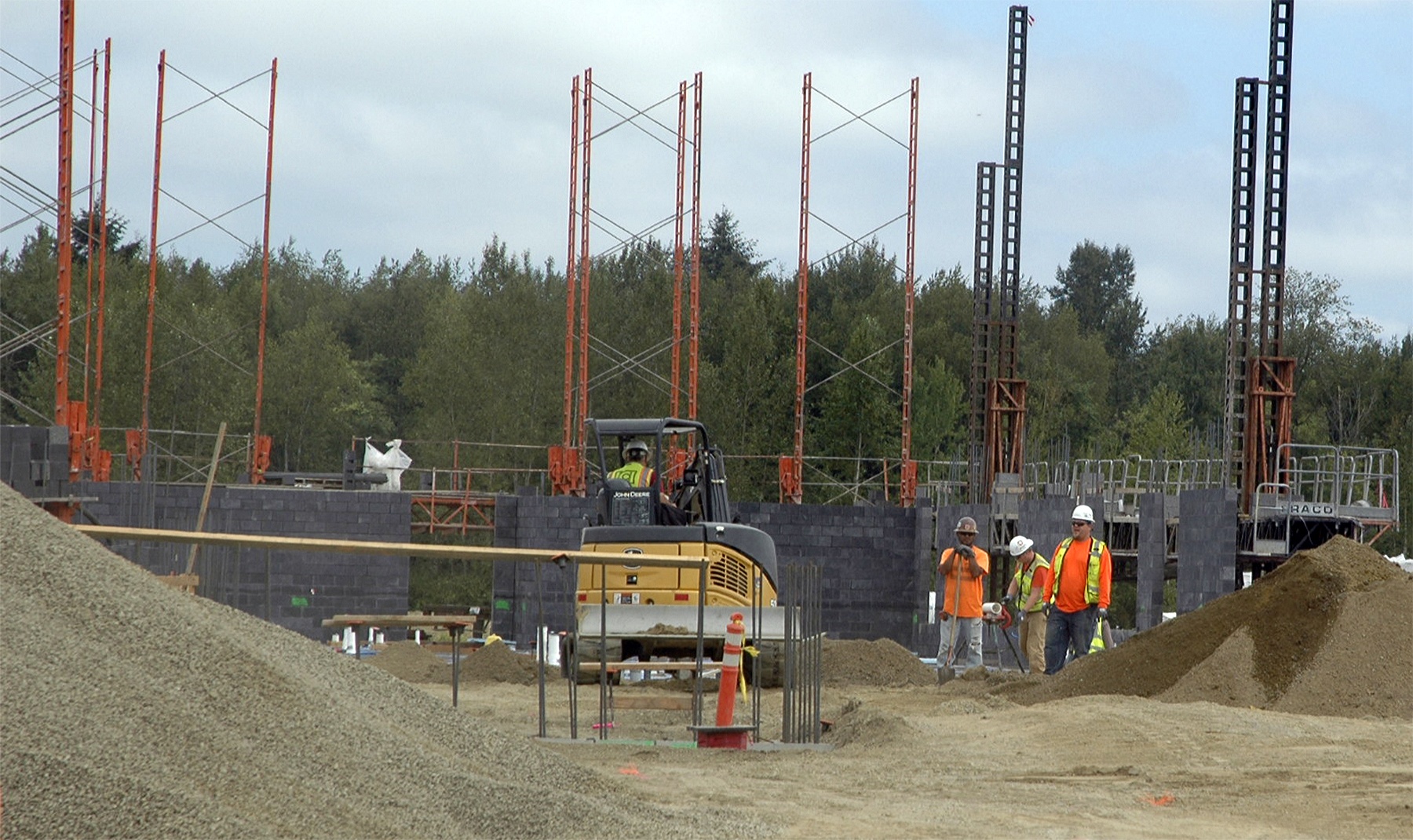SMOKEY POINT — This week’s groundbreaking of the Smokey Point Behavioral Hospital was celebrated as a much-needed addition by representatives of Marysville and Arlington, the Tulalip Tribes, Snohomish County, and members of the state and federal legislature.
Jesica Stickles, an Arlington councilwoman and president of the Greater Marysville Tulalip Chamber of Commerce, noted that suicide is a greater problem in Washington state than it is nationwide.
Suicide is the eighth-leading cause of death for the country, but the second-leading cause of death for Washingtonians aged 10-34.
The two-story, 115-bed, 71,000-squarebuilding is set to be constructed around June of next year at an estimated cost of $22 million.
Misty Napeahi, general manager of the Tulalip Tribes, sees the need for such a facility every day on the reservation.
“There are so many homeless people in our backwoods,” Napeahi said. “They’re not tribal members, but they have nowhere else to go. You can send them to the hospital, where they’ll be put on a seventy-two-hour hold, but then they’re back on the streets.”
Napeahi has 15 years of experience in mental health services, and her mother has coped with clinical depression for 20 years, “so I live and breathe this stuff.” She hopes that such treatmens centers will help de-stigmatize mental health.
“Mental and behavioral health sounds so abstract, but it’s about the health of your brain,” Napeahi said. “It’s like having diabetes or heart disease.”
Marysville Mayor Jon Nehring acknowledged that the county is facing “a mental health and substance abuse epidemic.”
“Marysville’s Healthy Communities program focuses on the physical and emotional health of our citizens, and on promoting well-being and quality of life,” Nehring said. “But when you have people with mood disorders that lead them to commit suicide, those lives that are lost, futures that are lost, and potential that is lost.”
Nehring praised US HealthVest for bringing the behavioral hospital to Smokey Point, where it will provide both comprehensive and specialized psychiatric services to patients from Seattle to the Canadian border.
“They’ll be able to receive evaluations and be referred to other professionals, all so they can eventually develop a self-sustaining lifestyle again,” Nehring said.
Dr. Richard Kresch, president and CEO of US HealthVest, apologized for the dust being kicked up by Mortenson Construction, but since the road toward this groundbreaking began seven years ago, he admitted he didn’t want to waste any time.
“We have received tremendous support from every level, from local government to individual citizens,” Kresch said. “You all understand the need to treat mental health, just as we would any other health problem, and we will be a good neighbor to you. We will serve as a resource for hospitals and individual health care practitioners, and we will serve all patients, regardless of their ability to pay.”
Kresch pointed out that the county has fewer mental health services than other parts of the state, which is one of the most under-served in America, in terms of numbers of behavioral hospital beds. “We’re definitely looking to fill a gap here,” Kresch said.
As soon as the hospital’s doors at 3955 156th St. NE open, its staff of roughly 200 will provide a range of behavioral health care, including inpatient and day hospital services, as well as a mental health and addiction crisis assessment center that will be open 24/7.
Kresch touted the 25 beds that will be devoted exclusively to children and adolescents, which he believes is one of the highest concentrations for that age group in the Northwest.
“We’ll also be offering age-specific services for seniors because as people get older, there tends to be a higher prevalence of depression,” Kresch said. “We don’t want to mix our seniors with our other patients, because they have their own unique needs, so we’ll be giving them their own area.”
The hospital is also setting aside units for military veterans and Native Americans, the latter after conducting conversations with the Tulalip Tribes.
“We already have a lot of experience in serving the needs of Native American tribes around the country,” Kresch said. “We want to create an environment where they’ll feel comfortable to heal.”
The hospital will also offer an intensive care unit, for “individuals in crisis, or whose lives are extremely disorganized,” as well as programs tailored to women’s needs and faith-based groups, all of which Kresch sees as essential as the region experiences rapid population growth, and with it, a heightened need for behavioral health care.
The hospital was designed by Seattle-based architecture firm CollinsWoerman, with semi-private patient rooms, an outpatient clinic and support space, including a pharmacy and food service, plus indoor and outdoor recreational activity areas.



